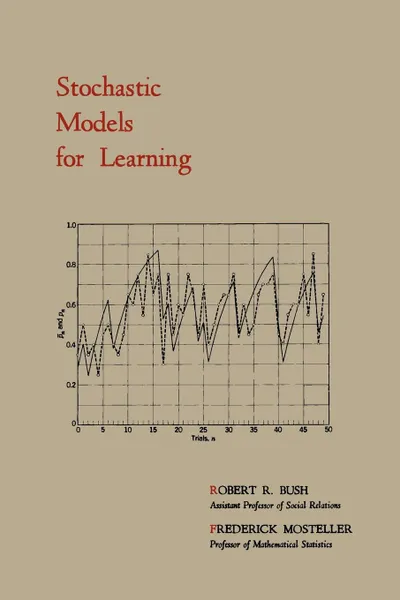Stochastic Models for Learning 12+
Автор: Robert R. Bush,
Frederick Mosteller
2012
382 страницы
Категория: Научная литература
ISBN: 9781614273196
Язык: Английский
Где найти книгу?
📖 2012 Reprint of 1955 Edition. Exact facsimile of the original edition, not reproduced with Optical Recognition Software. A stochastic process is one in which the probabilities of a set of events keep changing with time. Bush and Mosteller make use of the mathematical techniques developed for the study of such processes in building a theory of learning and then apply the theory to explain the results of several learning experiments. Contents: Part I: The mathematical system and the general model -- 1. The basic model -- 2. Stimulus sampling and conditioning -- 3. Sequences of events -- 4. Distributions of response probabilities -- 5. The equal alpha condition -- 6. Approximate methods -- 7. Operators with limits zero and unity -- 8. Commuting operators -- Part II: Applications -- 9. Identification and estimation -- 10. Free-recall verbal learning -- 11. Avoidance training -- 12. An experiment on imitation -- 13. Symmetric choice problems -- 14. Runway experiments -- 15. Evaluations.
Мнения
